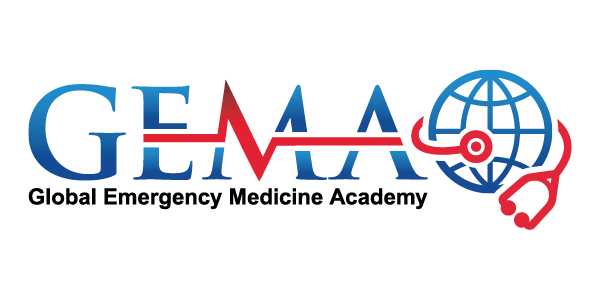
STANFORD GLOBAL EMERGENCY MEDICINE
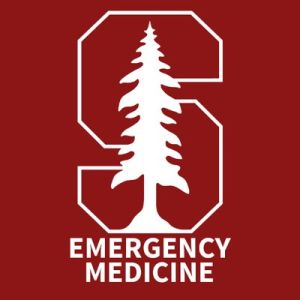

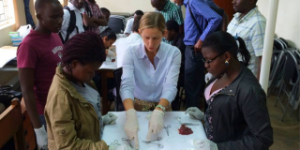
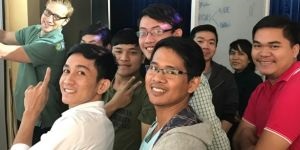
Fellowship Curriculum
The Stanford Global Emergency Medicine Fellowship offers a comprehensive two-year program, housed within the Department of Emergency Medicine at Stanford University. Fellows have the option to pursue an associated Master's degree (MPH, MEHP, Ms-PopH), providing them with a solid foundation to thrive in resource-limited settings worldwide.
Throughout the fellowship, participants engage in a variety of international health programs, collaborating with Emergency Medicine faculty and partners such as local governments, NGOs, private organizations, and international aid agencies. Projects include EMS development, Emergency Medicine education, rural health initiatives, and trauma-system development and clinical research.
The fellowship, administered by the Stanford Emergency Medicine International (SEMI) section, focuses on human development through education, emergency care systems strengthening, and research. Guided by the principles outlined by the Society of Academic Emergency Medicine and the American College of Emergency Physicians, fellows work closely with local healthcare providers and government officials to assess international healthcare systems and address critical emergency medical health issues.
The program offers flexibility for fellows to pursue their specific interests and goals. Whether it's research, community health, or medical education, participants have the opportunity to develop, implement, and integrate initiatives tailored to address the unique challenges faced by communities around the globe.
Projects
| Project Name & Description | Details |
|---|---|
| EM Instructor Development |
SEMI is collecting data on learning best practices from our train-the-trainer program, which enables graduates of our Myanmar emergency medicine diploma course to become instructors themselves.
|
| Provider Support Tools |
SEMI has developed 27+ locally appropriate care guidelines for ambulance drivers, and created a custom-built mobile app to provide quick access to the information in Nepal. Using data collected through the app, SEMI is identifying practice gaps, and collaborating on ways to address these gaps from systems, education, and organizational standpoint.
|
| Gender Based Violence |
SEMI is studying records of helpline calls and conducting in-person interviews to develop a clearer understanding of women's needs that will serve to strengthen and grow helpline services and technology in India.
|
| BCM in India |
Resident education & clinical care at the Jawaharlal Institute of Postgraduate Medical Education and Research (JIMPER) in Pondicherri, India
|
| Sri Lanka |
SEMI investigators are working with Sri Lankan researchers and public health system leadership to evaluate current trends in road traffic accident epidemiology, cost, and outcomes. They are also partnering with prehospital care and Ministry of Health stakeholders to identify means of leveraging current transport resources to increase access to emergency care for patients of all types throughout Sri Lanka.
|
| EMS Training in Kenya |
SEMI physicians have partnered with a private EMS system in Kenya to develop and implement a train-the-trainer education program for pre-hospital providers.
|
| POCUS Curriculum in Rwanda |
SEMI faculty are partnering with Rwandan EM faculty to develop a hybrid curriculum to improve the Rwandan residents’ POCUS skills and to implement a quality assurance (QA) program. We aim to make the initiative sustainable with building local ultrasound expertise by encouraging current residents to join the QA program to gain the needed expertise to teach others ultrasound.
|
| Medevac Utilization in Rural Alaska |
SEMI faculty focus on understanding clinical decision-making by physicians and non-physician community health workers who deliver front-line care in rural Alaska, where emergency care depends entirely on air ambulances. They also provide support using machine learning models.
|
| Mental Health in East San José |
Dr Newberry, a SEMI faculty member, is leading an NIH-funded research team that collaborates with community-engaged researchers from Epidemiology, Psychiatry, and a team at Drexel University, a leading social network analysis expert. Together they work with a range of community partners and promotores from East San José, California to strengthen the use of mental health services in the Latinx community.
|
| Non-Communicable Diseases (NCDs) in LMICs |
SEMI faculty have been working to understand the prevalence and burden of NCDs in LMICs, with development of evidence-based interventions using implementation science approaches. Key areas of focus include tobacco, alcohol, cardiovascular disease, the intersection between climate change and NCDs, and the use of mHealth for intervention delivery.
|
| Human and Planetary Health Program |
In collaboration with EMRI Green Health Services and researchers from IIT Delhi, SEMI studies the impact of severe weather events on pediatric emergency health in India. Our research informs health policies and healthcare systems to better address children's needs during extreme weather, enhancing emergency preparedness and response.
|
| Learning During Health Emergencies |
In partnership with the Stanford Center for Health Education, the program is working with OpenWHO to establish a Centre on Learning During Health Emergencies, focusing on health promotion and providing technical advice and research for emergency preparedness. This initiative aims to enhance the design of educational programs and build an evidence base for training methods tailored to health crises, as part of the WHO Health Emergencies Programme's strategy to improve workforce readiness and response capabilities.
|
| EMS in India |
Stanford University and Emergency Management and Research Institute Green Health Services (EMRI GHS) continue their multi-decade collaboration to advance emergency medical services in India. This partnership focuses on developing cutting-edge training programs, improving prehospital care protocols, and conducting research into emergency medical systems, significantly elevating the quality of emergency response across the region.
|
Alumni

Jennifer Jones

Tina Dennison

Benjamin Lindquist, MD

Katherine Koval

Ben Constance

Beau Briese

Jennifer Kanapicki-Comer

Scott Bradley
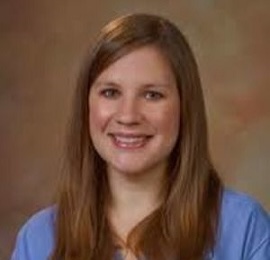
Danielle Mianzo

Daniel Shogilev

Corey Bills, MD, MPH

Wei David Hao, MD, MPH


Monalisa Muchatuta

Joseph Becker

Peter Acker, MD, MPH

Ayesha Khan, MD, MPH

Lusana Shutz

Daniel Grossman

Patrick Lanter, MD

Enoch Obeng, MD
Enoch Obeng, MDContacts

Other Documents - Program Specific Requirements
Additional Application / Interview Information
Application Criteria
Graduation from a 4 year ACGME accredited residency program or 3 year ACGME accredited residency plus at least 1 year of clinical experience is required. Visit our Global Emergency Medicine Specialized Programs online to learn more about our work. Contact Pawan Brar at pbrar@stanford.edu for further questions.
Application Process
All applications must be submitted by the application deadline through the SAEM Application Portal button below. Please note, you must also register for the NRMP Match. For questions regarding the application portal, contact helpdesk@saem.org.
Important Dates
Application Deadline
Interview Date

